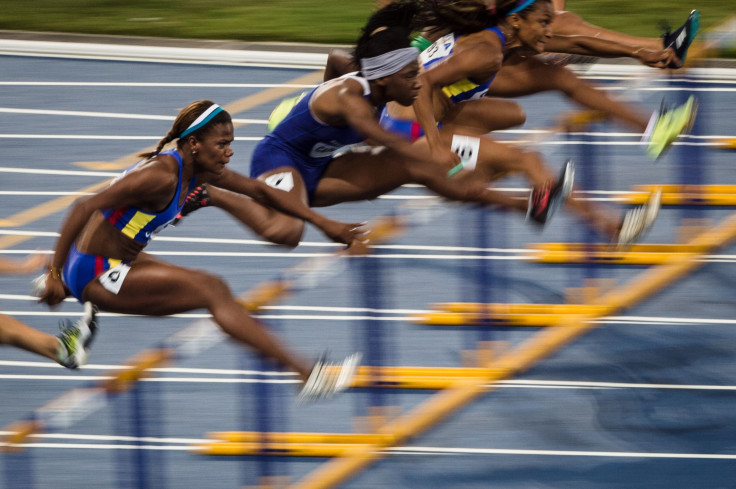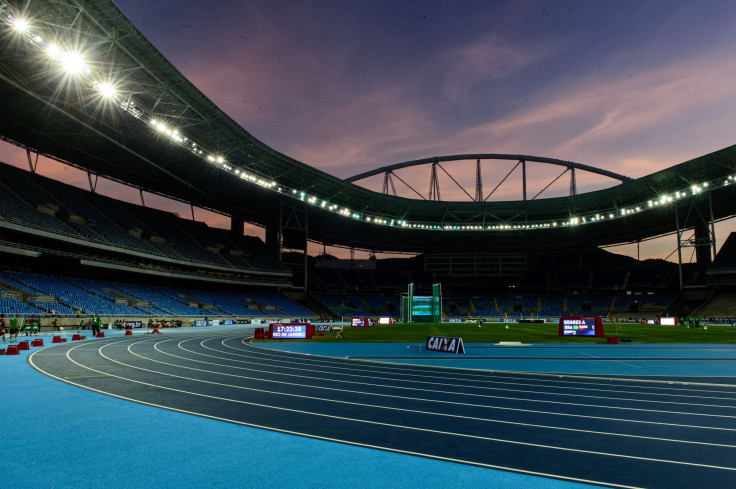Rio 2016 Olympics: The State Of Doping Explained In 5 Questions, Answers

Ahead of the 2016 Summer Olympics in Rio de Janeiro, allegations of doping in international sports have been piling up recently, including failed retests and reports of systemic cheating that have cast a dark shadow over the 2014 Games in Sochi, Russia, and the 2008 games in Beijing. And with the International Olympic Committee (IOC) going back and looking again at samples from the 2012 London Games, this could merely be the beginning.
Here are five questions and answers about what’s going on with doping in the sports world and how the Rio Games could be affected.
So, What Are the Major Scandals?
The major doping scandals plaguing the international sports community ahead of Rio are wide-ranging and potentially catastrophic. Perhaps the most damning allegations came with a bombshell New York Times report that featured the former head of Russia’s anti-doping laboratory detailing a state-sponsored system to swap out tainted urine samples during the Sochi Games.
How Russia beat doping tests at the Sochi Olympics, explained by a doctor who helped https://t.co/gN0Czg9Q0S pic.twitter.com/jmmPQgOg4G
— The New York Times (@nytimes) May 15, 2016
Following the Sochi reports, the IOC retested 454 samples from the Beijing Games and found that 31 unnamed athletes from six sports could now face bans. They plan to retest more.
“All these measures are a powerful strike against the cheats we do not allow to win,” IOC President Thomas Bach said in a statement. “They show once again that dopers have no place to hide.”
Russia was previously suspended last November by the International Association of Athletics Federations (IAAF) after being accused of state-backed doping in a report commissioned by the World Anti-Doping Agency (WADA). Russia faces a potential ban from the Rio Games for the allegations and a decision is expected sometime in June.
Since the start of 2016, hundreds of athletes — many of whom were Russian, including tennis star Maria Sharapova — have failed tests for newly barred drug meldonium, which apparently improves endurance. However, it’s unclear if those athletes will be banned after WADA admitted the failed tests could have possibly come from having traces of the drug before it was outlawed at the start of 2016.
What Are the Authorities Doing in Response?
The IOC said it plans to retest 250 London samples from 2012 and then continue the wide-ranging rounds of retesting after that. The IOC and WADA have said they’ll investigate the Sochi claims, as well.
The statute of limitations on doping infractions is 10 years, according to WADA’s most recent code. Those who fail retests could be stripped of their medals. Consequently, those who get elevated to medal-winning status will have their own samples retested. Olympic-level athletes typically have brief windows during which they’re able to compete at the highest levels. That means the London samples set to be retested could be particularly significant because many of 2012 competitors are still in their athletic primes. A failed retest could leave them barred from Rio and potentially end their Olympic careers.

But WADA, which oversees international doping policies, could be overmatched in a competitive environment that rewards taking risks to gain the slightest edge.
“They’re trapped in the cops and robbers model; the detect and catch,” John Hoberman, a University of Texas historian and doping expert, told International Business Times. He likened it to the Dutch fable of a small boy who tried to prevent a flood by plugging a dam with his finger.
“It is business as usual, it’s a situation in which an underfunded WADA is a little Dutch boy putting his finger in a dike and hoping it doesn’t explode. What’s happened is they’ve put their fingers in a lot of holes and water’s rushing in everywhere,” Hoberman said.
Why Is This All Coming at Once?
For one, the bombshell reports have seemingly sparked action. It’s a public relations nightmare for the IOC, which wants to assure fans the games are fair. As the Rio Games approach, the group could be looking to win the news cycle while showing athletes that even if they aren’t caught today, they can still be punished nearly a decade later.
Dr. Norman Fost, who has studied performance-enhancing drugs (PEDs) as a professor of pediatrics and bioethics at the University of Wisconsin-Madison, said athletes are typically a few steps ahead of testers. Simply put, the “places that people get caught are the ones that are easy to test for,” Fost told IBT.
One expert pointed out in the Montreal Gazette that the 31 Beijing athletes who failed upon retests probably did so simply because testing technology finally caught up with their methods of doping.
Seems Like There’s a Lot Going on With Russia, Huh?
Russia has a number of doping crises on its hands. And the situation is getting more serious by the day. Prosecutors in the country announced Thursday they’d look into possible doping in the last three Olympic Games. They did not say specifically which allegations they’d examine, according to the Associated Press.
This follows a New York Times report that the U.S. Justice Department had opened an investigation into the alleged scheme, a move reminiscent of its efforts to go after FIFA, the international soccer governing body.

How Could This Affect the Rio 2016 Games?
Certain sports are disproportionately affected by doping. If anyone is to get caught in the lead-up to the games, Hoberman said, sports like swimming, track and field, weightlifting and cycling are typical culprits.
The biggest potential loss isn’t any single athlete, but the entire nation of Russia, an Olympic stalwart and major player on the international stage. However, despite the many serious allegations — including the Sochi accusations that Bach said represent an “unprecedented level of criminality” — Hoberman was skeptical Russia would be banned from competing in Rio.
After all, the Olympics have crafted an image as an event that brings together the world. “You have to have everybody there ... if you lose a Russia, if you lose a China, then your prestige goes down because you have failed to unify a globe,” he said.
© Copyright IBTimes 2025. All rights reserved.























